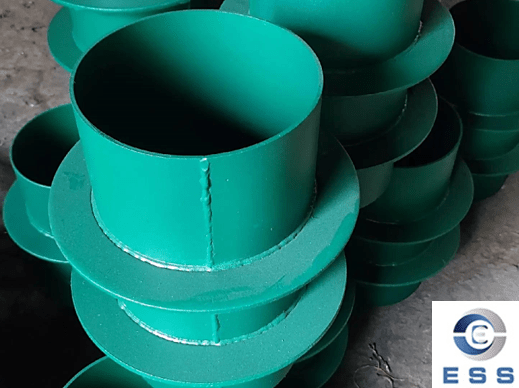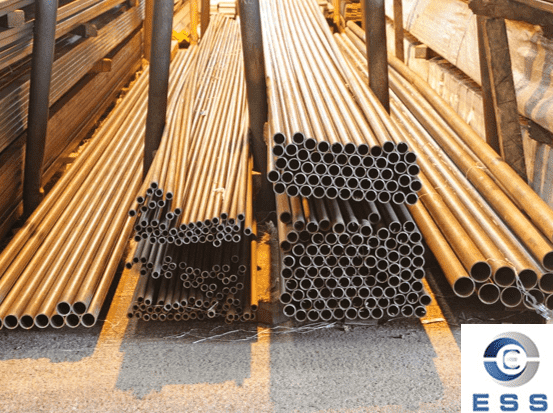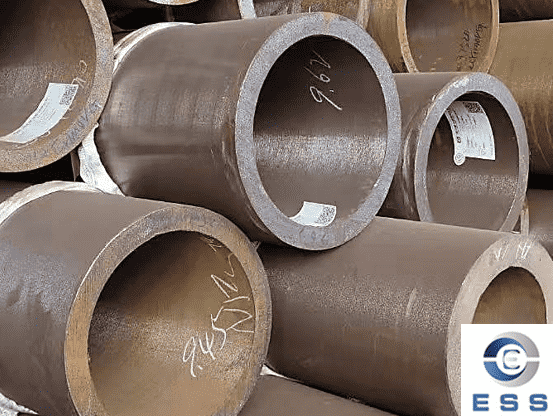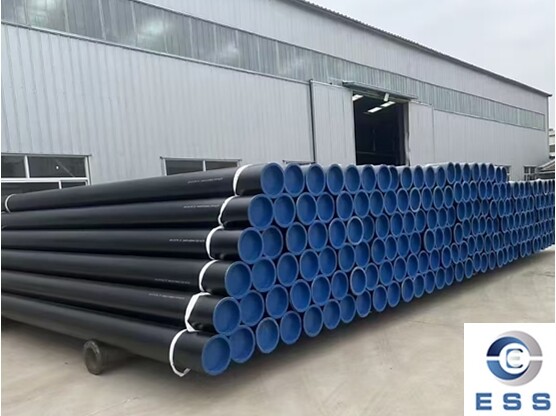
Casing Pipe Classification and Weight Summary
Casing pipe is a critical component widely
used in construction, petrochemical, power generation, and other fields. Its
weight varies depending on the material, specification, and length.
Understanding casing pipe weight is crucial for ensuring project safety,
controlling costs, and optimizing design plans.
Casing Pipe Classifications and Models
1. Oil Casing Pipe
Also known as steel
casing pipe, it can be classified as J55,
K55, N80,
and L80, depending on wall thickness and model.
2. Large-Diameter Casing Pipe
Depending on wall thickness and diameter,
it can be classified as large-diameter, extra-large-diameter, and
extra-thick-wall casing pipe.
Depending on the material and processing
method, it can be classified as standard drill pipe casing pipe and non-wear
drill pipe casing pipe.
Factors Affecting Casing Pipe Weight
1. Material
Casing pipe density varies depending on the
material, so the weight of casing pipe of the same size can vary. Common casing
pipe materials include steel, copper, and aluminum.
2. Specifications
The diameter and wall thickness of the
casing pipe are key factors affecting its weight. Generally speaking, larger
diameters and thicker walls increase the weight.
3. Length
The length of the casing pipe also affects
its weight. For the same material and specifications, longer casing pipes tend
to weigh more.
Casing Pipe Weight Summary
1. Oil Casing Pipe Weight Summary
|
Model
|
Diameter (mm)
|
Wall Thickness (mm)
|
Weight (kg/m)
|
|
J55
|
60.32
|
5.54
|
12.2
|
|
K55
|
73.02
|
5.51
|
16.13
|
|
N80
|
88.9
|
6.45
|
24.84
|
|
L80
|
88.9
|
7.62
|
29.94
|
2. Large Diameter Casing Pipe Weight
Summary
|
Model
|
Diameter (mm)
|
Wall Thickness (mm)
|
Weight (kg/m)
|
|
Large Diameter Pipe
|
177.8
|
14.78
|
71.43
|
|
Extra Large Diameter Pipe
|
244.5
|
28.58
|
188.15
|
|
Extra Thick Wall Casing Pipe
|
267
|
36.53
|
254.42
|
3. Drill Pipe Casing Pipe Weight
Summary
|
Model
|
Diameter (mm)
|
Wall Thickness (mm)
|
Weight (kg/m)
|
|
Ordinary Drill Pipe Casing Pipe
|
60.3
|
4.83
|
8.94
|
|
Non-Wear Drill Pipe Casing Pipe
|
50.3
|
6.8
|
10.09
|
Notes
1. Impact of Casing Pipe Material on Weight
Different materials have different
densities, which affect weight to varying degrees. For example, steel and
copper casing pipe of the same size can have significantly different weights.
During engineering design, casing pipe materials should be carefully selected
to meet project requirements while controlling weight.
2. Impact of Casing Pipe Size and Quantity
Casing pipe size and quantity also
significantly impact weight. Large-diameter or long-length casing pipe will
weigh more. Furthermore, the number of casing pipes should be considered, as
weight increases with the number of casing pipes. During engineering design,
casing pipe size and quantity should be determined based on actual conditions
to control weight.
3. Ensuring Calculation Accuracy
The casing
pipe weight calculation formula is theoretical, and varying degrees of
accuracy will have varying effects on the results. Therefore, calculations
should be performed with the utmost precision and error reduction to ensure
accurate results.
Casing Pipe Selection
Casing pipe is widely used in various
downhole operations, including oil and gas operations, and is an essential
industrial material. When selecting casing pipe, consider the following:
1. Model Selection
Select the appropriate casing pipe model
based on operational needs.
2. Material Selection
Different operating scenarios and
requirements require different materials.
3. Wall Thickness Selection
Select the appropriate wall thickness based
on a comprehensive consideration of factors such as well depth, wellbore, and
operating environment to ensure casing pipe strength and safety.
4. Quality Inspection
Inspect the quality of casing pipe when
purchasing to avoid purchasing low-quality casing pipe.
Summary
This article focuses on the model,
diameter, wall thickness, material, and corresponding weight data for three
types of casing pipe: oil casing pipe, large-diameter casing pipe, and drill
pipe casing pipe. Casing pipe weight is a complex issue involving multiple
factors. By understanding the parameters and factors that affect casing pipe
weight, mastering the calculation method of casing pipe weight and paying
attention to its practical application value, we can better utilize this
important engineering component to provide strong support for various projects.













 Eastern Steel Manufacturing Co.,Ltd not only improve product production and sales services, but also provide additional value-added services. As long as you need, we can complete your specific needs together.
Eastern Steel Manufacturing Co.,Ltd not only improve product production and sales services, but also provide additional value-added services. As long as you need, we can complete your specific needs together.










